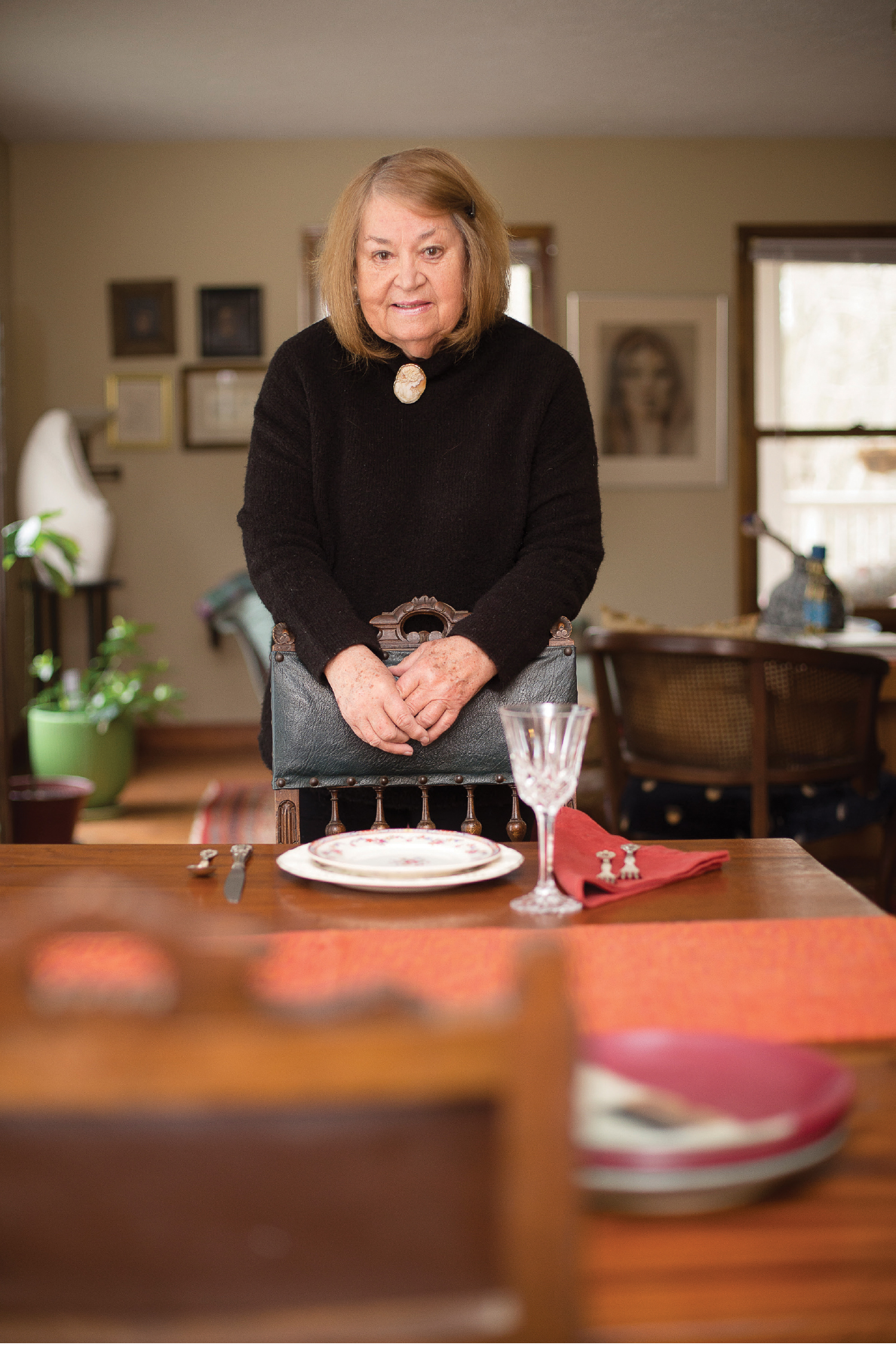
While dinner parties only happen occasionally these days, dinner-table politics never die, says comparative-literature professor Susanne Kimball.
Portrait by Matt Rose
No human behavior is as ancient or as fundamental as the sharing of food, an activity that crosses cultures, belief systems, and any setting from the mouth of a cave to crystal-glinted, aristocratic dining rooms. Human society could not have developed without it, a fact not lost on writers from Homer to James Joyce, just two of the authors under study in this month’s two-day course “Sharing Food In Literature,” offered by Blue Ridge Community College’s Center For Lifelong Learning.
Taught by Susanne Kimball, who retired to Asheville after a teaching career in comparative literature at the University of California and the University of Texas, the course will examine key scenes from literature revolving around food, its social connotations, and the rules surrounding the sharing of it. The eclectic course curriculum is drawn from ancient sources in Greek literature and the Bible as well as contemporary examples from the writings of not only Joyce but Albert Camus (The Guest) and Laura Esquivel (Like Water for Chocolate), among others.
“The reason for using the banquet or formal dinner setting in literature and film is the same reason we still occasionally have dinner parties,” Kimball says. “In this age of iPhones, the art of conversation is almost entirely lost. We crave an uninterrupted conversation which results when people actually sit down and spend time with each other, passing dishes and pouring wine for each other.”
Food can also serve a revelatory function, as in the New Testament’s account of the supper at Emmaus when two disciples at first don’t recognize their dinner guest as the resurrected Christ. It will be among the introductory texts to be studied. Rituals surrounding the sharing of food can bring catastrophic results when those rituals are flouted, as when Odysseus returns to his home and slays the interlopers who not only have outstayed their welcome, but have shown little respect for Penelope and the table etiquette her regal presence requires. “Food at its best is spiritual, and sharing it with friends is a sacred activity,” Kimball notes of these examples.
One of the most famous dining scenes in 20th-century literature occurs in Joyce’s short story “The Dead,” where, during an annual Christmas feast at his aunts’ home, the protagonist, surrounded by political and professional foes, dreads making the expected toast: “The raisins and almonds and figs and apples and oranges and chocolates and sweets were now passed about the table and Aunt Julia invited all the guests to have either port or sherry. At first Mr. Bartell D’Arcy refused to take either but one of his neighbours nudged him and whispered something to him upon which he allowed his glass to be filled. Gradually as the last glasses were being filled the conversation ceased. A pause followed, broken only by the noise of the wine and by unsettlings of chairs. The Misses Morkan, all three, looked down at the tablecloth. Someone coughed once or twice and then a few gentlemen patted the table gently as a signal for silence. The silence came and Gabriel pushed back his chair.”
Also on the course syllabus is Doris Lessing’s African tale “The Old Chief Mshlanga,” in which a white landowner withholds food from the people whose land he has usurped, and Isak Dinesen’s “Babette’s Feast,” in which food helps a close-knit community overcome their petty differences. “What are the duties of the host, of the guests, and when as a guest have you outstayed your welcome?” Kimball muses. “These questions are still relevant in today’s society.”
Sharing Food In Literature is offered at Blue Ridge Center for Lifelong Learning’s Continuing Education building on consecutive Tuesdays, April 9 and 16, from 1-3pm. $30 for BRCCLL members, $40 for nonmembers. See brcll.com for details about pre-course reading.
